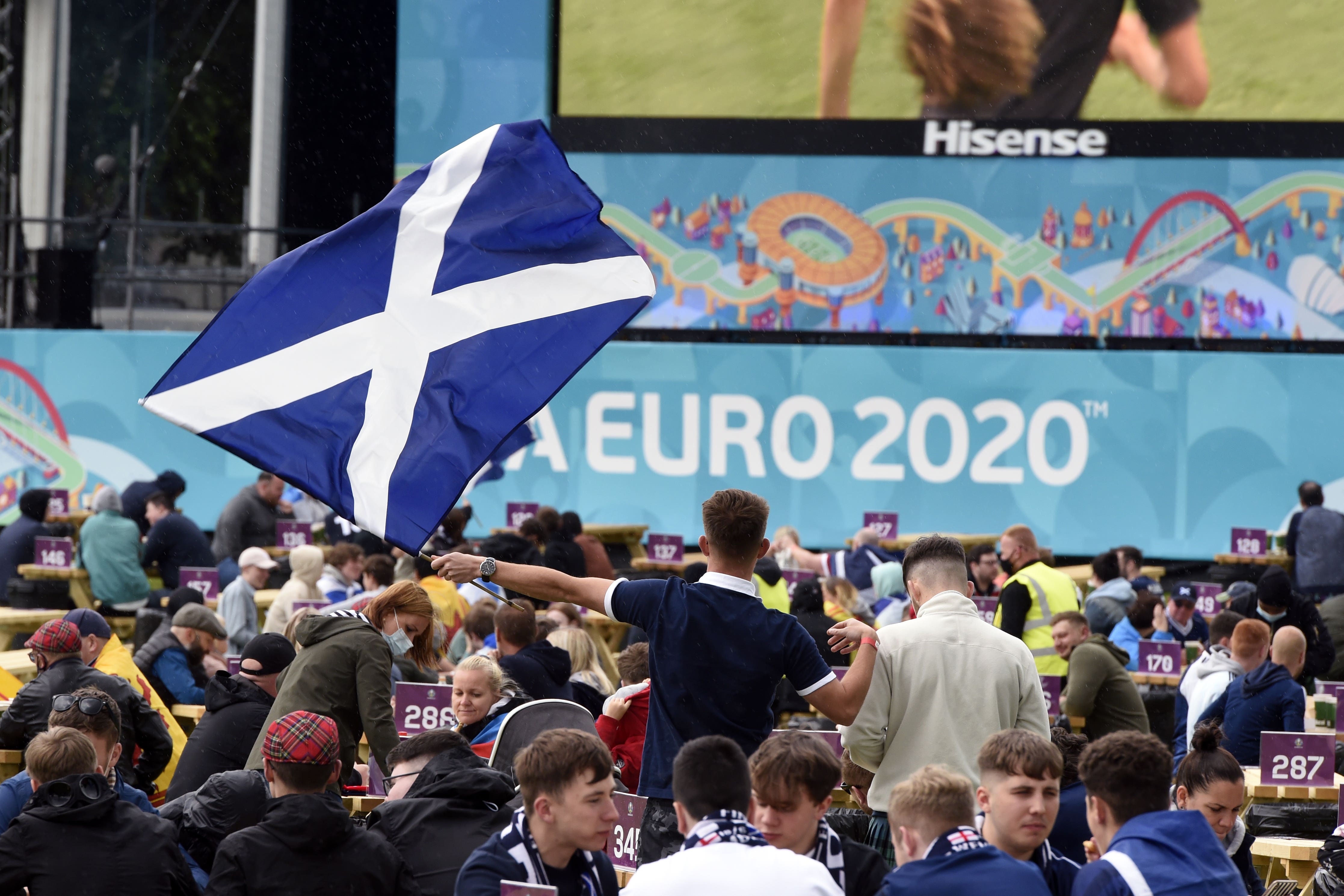Paywall on Scotland national men’s football matches ‘poll tax’ on Scots, MP says
Alba Party MP Kenny MacAskill also said that broadcasters were failing in their obligation to Scottish viewers.

Your support helps us to tell the story
From reproductive rights to climate change to Big Tech, The Independent is on the ground when the story is developing. Whether it's investigating the financials of Elon Musk's pro-Trump PAC or producing our latest documentary, 'The A Word', which shines a light on the American women fighting for reproductive rights, we know how important it is to parse out the facts from the messaging.
At such a critical moment in US history, we need reporters on the ground. Your donation allows us to keep sending journalists to speak to both sides of the story.
The Independent is trusted by Americans across the entire political spectrum. And unlike many other quality news outlets, we choose not to lock Americans out of our reporting and analysis with paywalls. We believe quality journalism should be available to everyone, paid for by those who can afford it.
Your support makes all the difference.Scottish national men’s football games being behind a paywall is a “poll tax” on Scots, MPs have heard.
Alba Party MP Kenny MacAskill (East Lothian) also said that broadcasters were failing in their obligation to Scottish viewers.
Streaming service Viaplay has exclusive rights to show Scotland men’s matches until 2028, and requires a paid subscription.
Mr MacAskill’s Broadcasting (Listed Sporting Events) (Scotland) Bill would expand the list of sporting events that must be free-to-air to include all qualifying matches played by the Scotland men’s and women’s national teams in the World Cup and the Euros.
He told the Commons: “For many in these tough financial times that’s a cost they can’t afford, no matter how much they’d like to watch the games. It’s a poll tax on Scots watching their national team.”
In 1990 riots broke out after then-Conservative prime minister Margaret Thatcher attempted to reform council financing via the community charge – dubbed the poll tax – a policy which was introduced first in Scotland.
Mr MacAskill also said: “The licence fee paid by Scots and rights given in Scotland to UK broadcasters aren’t being matched by coverage. That’s why this Bill is necessary, it must be mandatory that those games should be available and broadcasters must live up to their obligations.
“Scots fans have a right to see their team and to expect no less from their broadcasters.”
Mr MacAskill also said the Scotland games not being free to watch presented a regional inequality when compared to England and Wales.
“Many Scots are excluded from watching their team’s journey – that’s neither right nor fair. It’s neither the norm in Europe, with only seven countries including Scotland and Northern Ireland … in this situation,” he said.
“Nor is it the situation in England, where qualifying games have been free-to-air on ITV or Channel 4 since 2018. Even in Wales (when) the rights to the national teams qualifying fixtures were also sold to Viaplay in 2022, access was available free-to-air.”
Mr MacAskill further stated broadcasters are “showing themselves not as UK television outlets, but as team England only”.
He said: “That’s happening whether by the state-funded BBC, the publicly-owned Channel 4, or a commercial ITV or STV, but you have broadcasting obligations beyond the border.”
Mr MacAskill stressed that he did not hold the Scottish Football Association responsible for the paywall as a result of their decision to sell the rights of the games to Viaplay.
“Culpability rests with broadcasters who have not just rights but duties and in which they are failing Scotland,” he said.
Mr MacAskill said the SFA has a responsibility to support Scottish football that “comes at a cost”.
He said: “Money is tight for associations as for individuals, broadcasting money that flies at other nations such as Ireland when games south of the border in the Premier League are shown, are denied Scotland.
“The reason being that the UK is classed as one broadcasting entity and international football divergence is of no relevance. Hence a cash-strapped SFA needs to maximise income and the rights to show the national teams’ fixtures are their major asset.”
His Bill has been scheduled for a second reading on June 21 2024 although it is unlikely to become law in its current form due to a lack of parliamentary time.